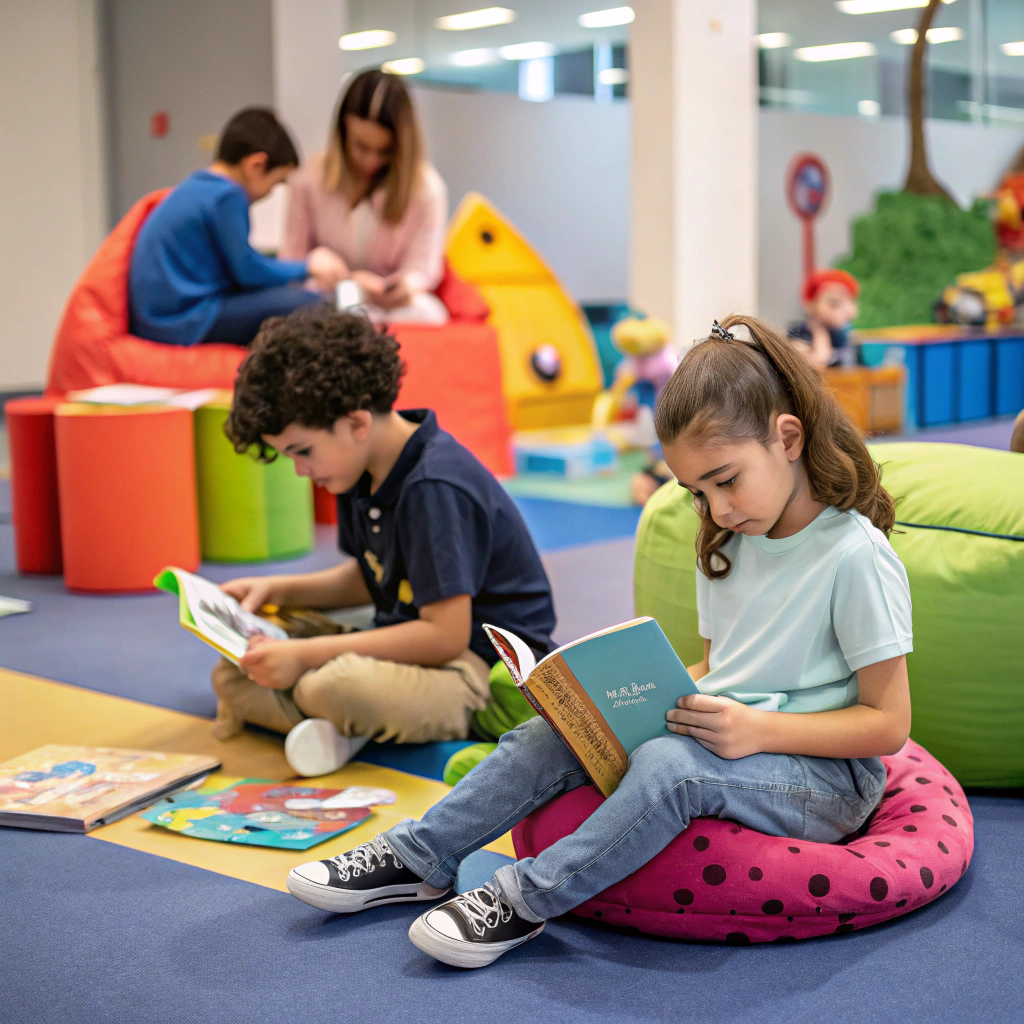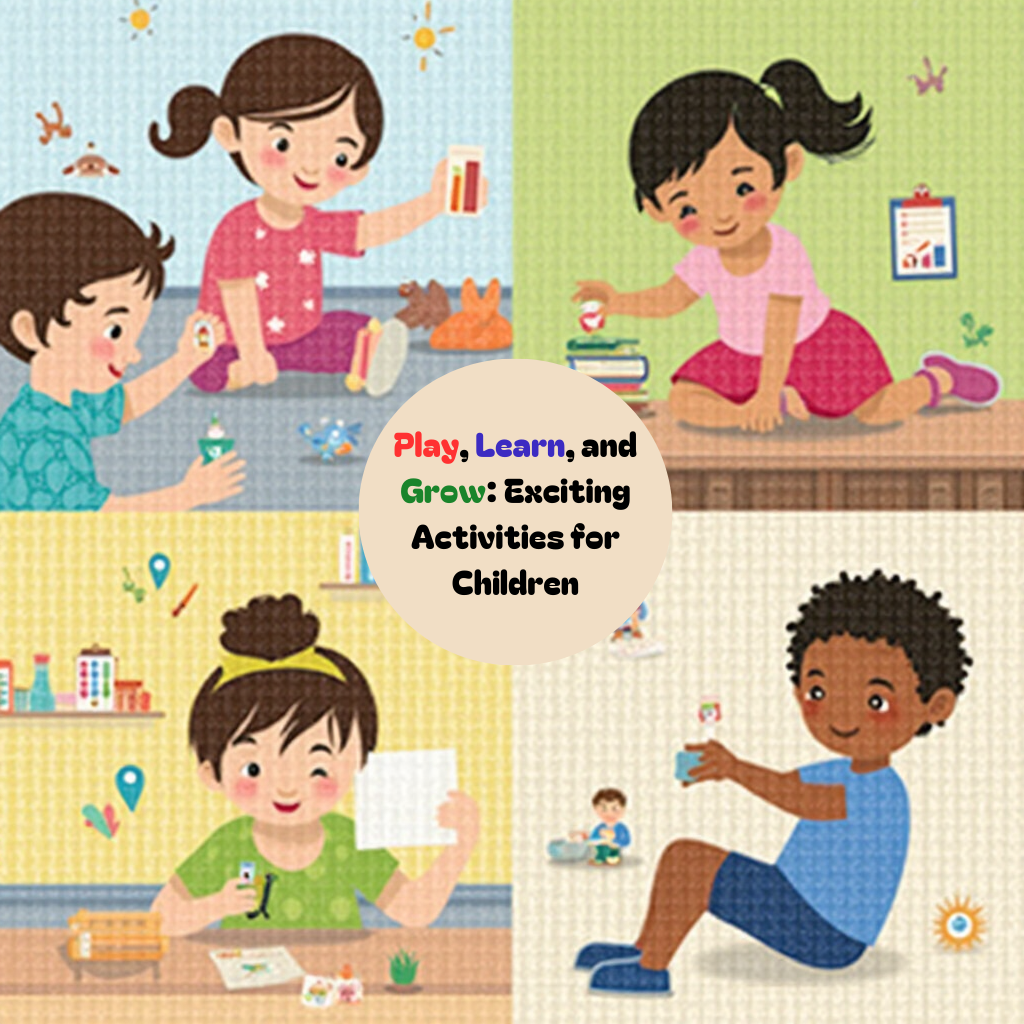Children thrive when they are engaged in activities that spark their curiosity and creativity. Play isn’t just fun—it’s a vital part of learning and development. In this guide, we’ll explore a variety of exciting activities that promote both education and play, helping children grow emotionally, socially, and intellectually. Whether indoors or outdoors, these activities are designed to keep kids entertained while encouraging essential skills for their future.
1. Creative Indoor Activities for Children: Fun, Learning, and Exploration
Engaging Arts and Crafts for Children to Spark Creativity
Indoor activities for children like arts and crafts are perfect for promoting creativity and self-expression. Drawing, painting, and constructing collages encourage kids to think outside the box while learning about colors, shapes, and textures. These activities also help improve fine motor skills and coordination, offering both fun and educational value at the same time.
Building Cognitive Skills with Puzzles and Blocks for Kids

Puzzles and building games are some of the best indoor activities for children to foster critical thinking. Whether it’s solving jigsaw puzzles or constructing with building blocks like Legos, these hands-on activities challenge children’s minds while allowing them to experience the joy of creation. They develop problem-solving skills, visual-spatial awareness, and logical thinking through fun play.
Science Experiments at Home: Fun and Educational Activities for Children
Incorporating science into children’s activities at home is a fantastic way to inspire curiosity and develop foundational STEM skills. Simple experiments, such as creating a baking soda volcano or testing magnetism, are fun for kids and provide excellent learning opportunities. These experiments encourage children to hypothesize, observe, and explore basic scientific principles, all while having a blast.
2. Outdoor Activities for Children: Promoting Physical Growth and Social Skills
Physical Play for Healthy Development
Outdoor activities are essential for children’s physical growth and development. Activities such as running, climbing, jumping, and playing ball games help children build coordination, balance, and muscle strength. Engaging in games like tag, relay races, or obstacle courses also promotes cardiovascular health while teaching children to work with their peers in a fun, competitive environment. These activities provide the right balance of exercise, skill development, and social interaction.
Exploring Nature and the Environment
Outdoor exploration gives children the opportunity to connect with nature while also learning about their environment. A simple nature walk can become a treasure hunt where children look for different types of leaves, flowers, or insects. During these walks, parents or caregivers can introduce children to the concept of ecosystems, biodiversity, and environmental conservation. Whether it’s a trip to the park, a hike in the woods, or a visit to a botanical garden, these outdoor experiences offer valuable lessons in science, ecology, and appreciation for the natural world.
Teamwork and Social Skills through Group Activities
Outdoor play doesn’t just build physical skills—it also teaches important social skills. Group games like hide-and-seek, soccer, or relay races encourage children to collaborate, communicate, and resolve conflicts. These interactions help children understand concepts like fairness, cooperation, and how to manage wins and losses gracefully. By participating in team-based outdoor activities, children also improve their ability to work in a group and build lasting friendships.

3. Educational Games for Children: Learning and Fun Through Play
Learning Math and Literacy with Fun Educational Games for Children
Educational games for children that focus on math and literacy are fantastic tools for reinforcing academic skills. Games like “Uno” or “Scrabble” promote number recognition, basic arithmetic, and vocabulary-building. These exciting activities for children also teach children how to strategize, follow rules, and improve memory, making learning enjoyable.
Digital Learning Apps: Interactive Educational Games for Children
Interactive educational apps provide a modern way to integrate technology into children’s learning activities. Apps that focus on reading, math, and problem-solving allow children to play while developing essential academic skills. These games for children adapt to different learning levels, ensuring that every child can enjoy a tailored educational experience, whether they’re just starting to learn or are ready for more complex challenges.
Building Emotional Intelligence with Fun Games for Children
Emotional intelligence is an important aspect of a child’s growth, and games for children can help develop this crucial skill. Games that involve role-playing, empathy-building activities, and recognizing emotions promote self-awareness and interpersonal understanding. Activities like “feelings charades” or social-emotional board games help kids navigate their emotions and improve their social interactions, all while playing.
Conclusion:
Incorporating a variety of activities into a child’s daily routine is crucial for their overall development. Whether it’s through creative indoor projects, outdoor adventures, or educational games, every opportunity for play is a chance for learning and growth. By engaging children in exciting activities that nurture their cognitive, physical, and social skills, parents and caregivers are setting them up for success both inside and outside the classroom. Play isn’t just fun—it’s the foundation for a child’s development, and the possibilities for learning through play are endless.

